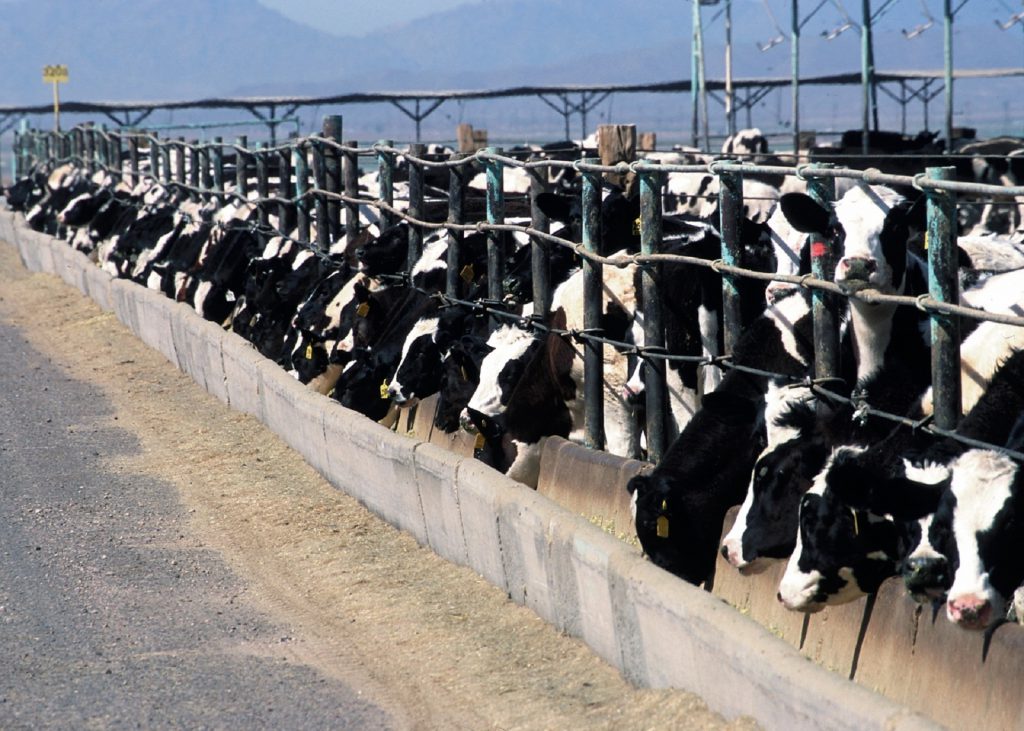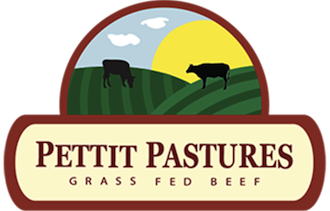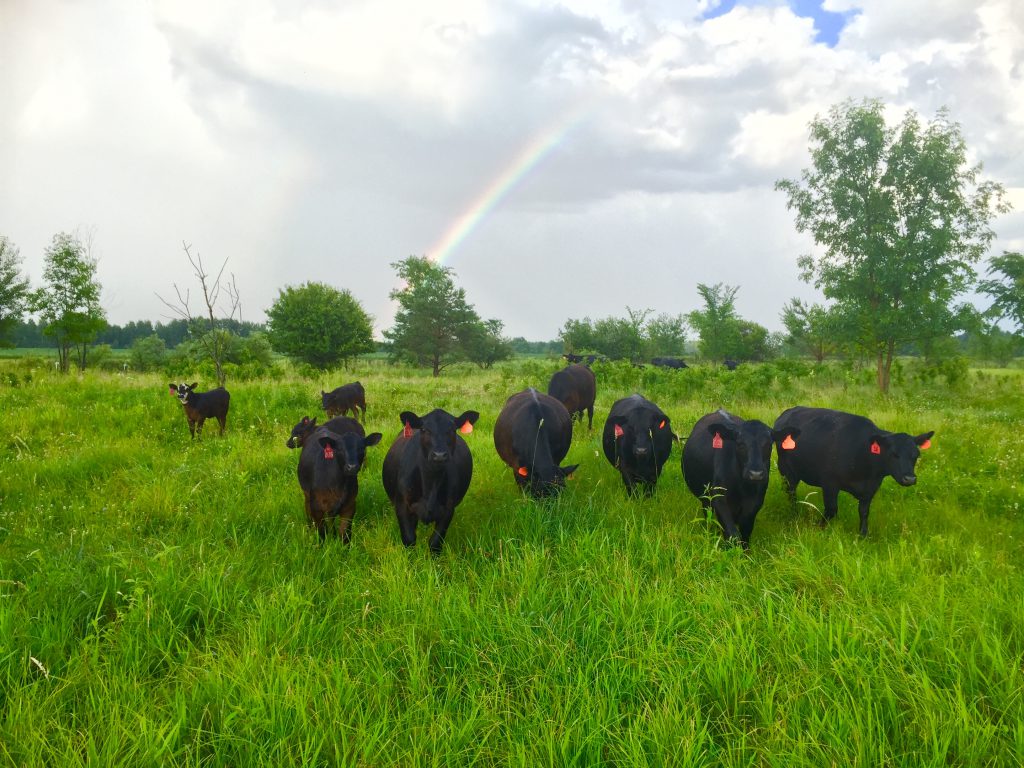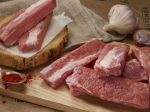
When compared to factory farming, raising Grass fed Beef in a pasture is a huge benefit to the environment. In a managed grazing system like we use at Pettit Pastures, the grass is managed to do the most efficient job of harvesting the sun’s solar energy. This creates a strong root base which not only nourishes the grasses but also holds the soil in place and creates a more efficient water cycle. During the grazing season, the cows harvest their own food and fertilize the pastures as they do so. This cuts down on fossil fuel use and drastically reduces the use of synthetic fertilizers. Also, the healthy grasses hold the manure in place as it biodegrades helping to prevent run off.



